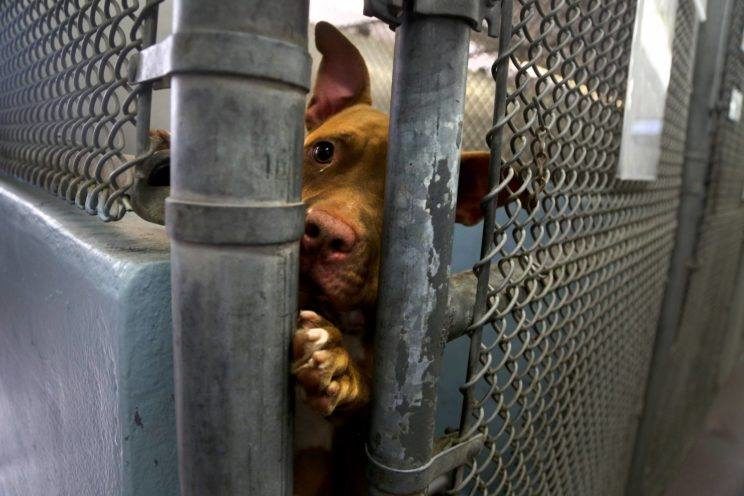“Euthanasia,” “put to sleep,” even the word “shelter” is a euphemism. But “saving lives”?

Many of us have long ago stopped using the euphemisms “euthanasia” and “putting them to sleep” to describe the killing of animals who are not irremediably suffering. Euphemisms obscure the gravity of what we are doing and make the task of killing easier. Once they are killed, these animals can no longer think and feel and run and play and eat and sleep and purr and bark and love and be loved. It is over. Forever. As one critic of shelter killing writes, these terms “cannot provide a thick enough gloss to conceal the disturbing, awful truth.”
A growing number of people are also rejecting the term “shelter” to describe pounds that kill. A shelter is a refuge, a haven. By contrast, a pound is “an enclosure maintained for confining stray or homeless animals.” To impound means to “imprison.” Act like a dog catcher and you are a dog catcher.
But what about the terms “lifesaving,” “saving lives,” and even “save rates”? Aren’t they euphemisms too? For most animals entering and then leaving “shelters,” they are. If an animal has been hit by a car or is suffering from a serious disease and enters a shelter which provides that animal with veterinary assistance that prevents death, that animal has been saved by a shelter.
Likewise, when a rescue organization takes an animal from death row at a pound, that animal has also been saved because the rescuer intervened to prevent the animal from being killed by someone else.
But when the term “lifesaving” is used to describe a pound choosing to adopt out an animal instead of killing that animal, killing is implied to be a natural outcome of animal “homelessness” that must be overcome, which it is not. Homelessness is not a fatal condition — or at least it shouldn’t be. Moreover, the vast majority of animals who enter pounds are healthy and treatable and not in danger of dying but for the threat the pound itself poses.
Pound employees cannot accurately be described as having “saved” an animal when the only threat the animal faced was the one that they themselves presented. In short, if someone was threatening to kill you, and chose to let you live instead, would you describe that person’s actions as having “saved” you?
————-
Have a comment? Join the discussion by clicking here.